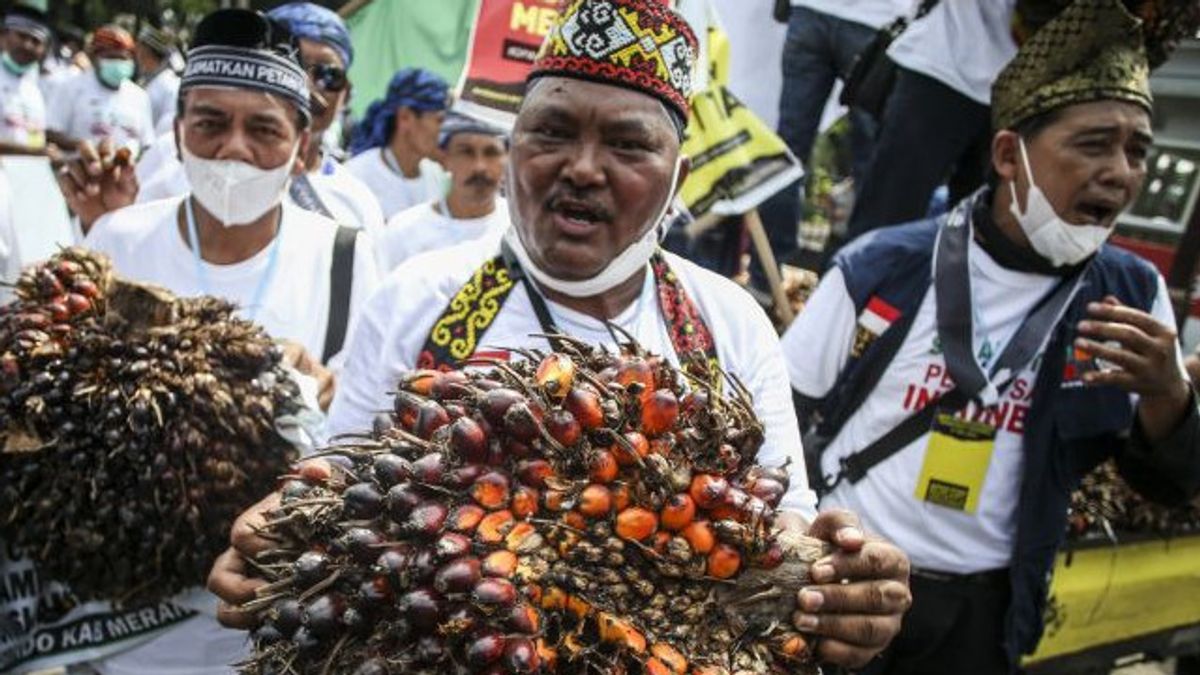JAKARTA - Chairman of the Indonesian Farmers Association (HKTI) DPN Fadli Zon wants the policy regarding the ban on CPO exports to be revoked because it is detrimental to oil palm farmers in various regions and does not solve the problem.
"In addition to failing to achieve its goal, which is to reduce retail cooking oil prices in the country, this policy has now proven to have brought even more losses, both to the trade balance, as well as to our oil palm farmers and CPO producers," said Fadli Zon in a written statement, quoted by Antara. from Antara, Tuesday 17 May.
According to him, the policy did not depart from a thorough study, and HKTI has also conveyed to the government that the export ban is not a solution, because the cause of the shortage of cooking oil in the country is not the amount of stock, but a matter of law enforcement related to DMO (Domestic Market Obligations) obligations.
He stated that a number of reasons why the policy was not appropriate, among others, because the CPO export ban policy departed from an inaccurate diagnosis of the problem.
As an illustration, he continued, our CPO production in 2021 will reach 46.88 million tons, while our domestic consumption is only 18.42 million tons (39.29 percent). On the other hand, the production of palm cooking oil (MGS) in 2021 is 20.22 million tons, while our domestic demand is only 5.07 million tons (25.07 percent).
"So, the excess supply of palm oil that has existed so far has been absorbed by the export market, it is impossible for all domestic markets to absorb it," said Fadli Zon.
In addition, he said, since the policy was released on April 28, 2022, the price of fresh fruit bunches (FFB) owned by oil palm farmers has continued to decline. According to HKTI's records, the decline in the price of oil palm FFB occurred in almost all regions.
He reminded that apart from falling prices, oil palm farmers are now in danger of not being able to sell their harvests, because a number of palm oil mills have started refusing to buy FFB from farmers and prefer to use their own plantations.
"Manufacturers have to reduce their production capacity due to this export ban. If their products cannot be absorbed by the market, what will happen to these millions of oil palm farmers?" he asked.
The head of the KNTI also stated that the export ban policy has the potential to harm trade performance because it will reduce export foreign exchange earnings. In 2021, the foreign exchange contribution of palm oil exports will reach US$35 billion, or more than Rp500 trillion.
In addition to foreign exchange exports, he continued, palm oil exports also contributed to the state treasury in the form of export taxes (export duties) and income from export levies.
"The loss of foreign exchange potential that is quite large can certainly suppress the rupiah exchange rate. From a macro perspective, the impact of this policy can be seen at the end of the month," he said.
Fadli believes that the export ban policy has weakened Indonesia's position as the world's largest producer of CPO, and the export ban policy has failed to reduce domestic cooking oil prices.
He said the average cooking oil price in the second week of May was still at Rp. 24,500 per liter. This figure is still much more expensive than the highest retail price set by the government.
"This failure only strengthens the initial conclusion that the increase in domestic cooking oil prices so far is not due to stock issues, but due to weak law enforcement," he said.
The English, Chinese, Japanese, Arabic, and French versions are automatically generated by the AI. So there may still be inaccuracies in translating, please always see Indonesian as our main language. (system supported by DigitalSiber.id)












